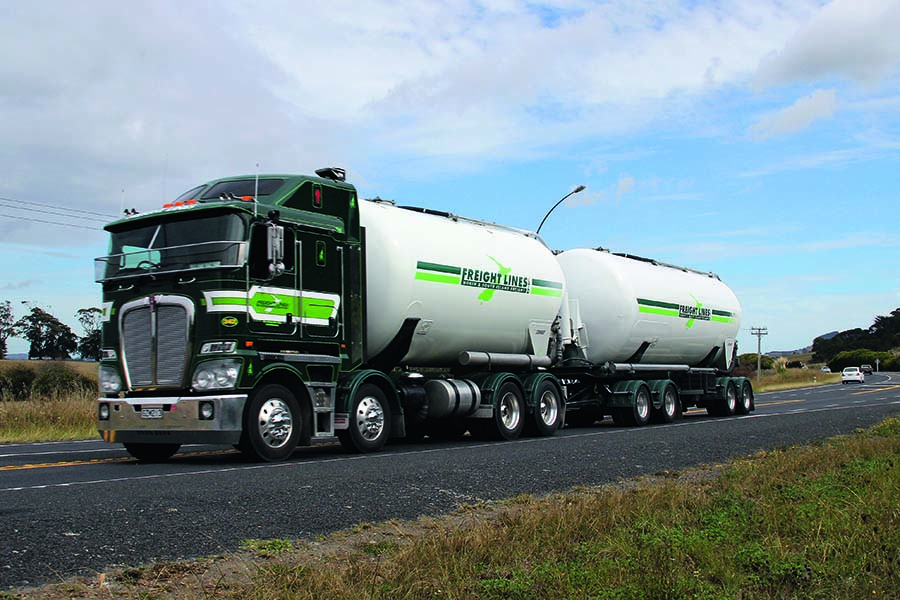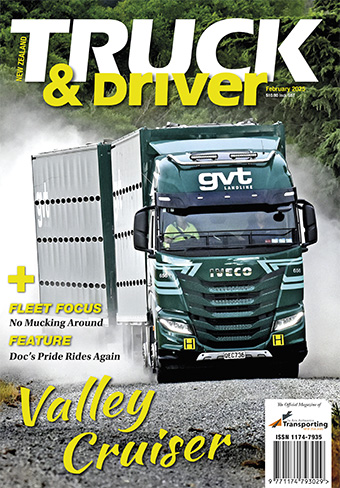Ia Ara Aotearoa Transporting New Zealand News


There’s never been a better time to build roads
New Zealand Truck & Driver readers will know by now that the Road Transport Forum is not shy in expressing its opinion that NZ requires a far better roading network than what we have currently.
RTF chief executive Nick Leggett and former leaders Ken Shirley and Tony Friedlander have been beating this drum for years.
And while there have been a few notable successes, such as the Waterview project in Auckland and the Waikato and Kapiti Expressways, RTF has largely been disappointed at the lack of priority given to roading infrastructure.
Says Leggett: "Frankly, governments of both stripes have a lot to answer for when it comes to the parlous state of our roading infrastructure.
"The Clark-led Labour Government spent a whole lot of money needlessly, buying back the failed KiwiRail – while the last National administration talked up a big game with the Roads of National Significance….but didn't actually get many of them done."
...New Zealand Truck & Driver readers will know by now that the Road Transport Forum is not shy in expressing its opinion that NZ requires a far better roading network than what we have currently.
RTF chief executive Nick Leggett and former leaders Ken Shirley and Tony Friedlander have been beating this drum for years.
And while there have been a few notable successes, such as the Waterview project in Auckland and the Waikato and Kapiti Expressways, RTF has largely been disappointed at the lack of priority given to roading infrastructure.
Says Leggett: "Frankly, governments of both stripes have a lot to answer for when it comes to the parlous state of our roading infrastructure.
"The Clark-led Labour Government spent a whole lot of money needlessly, buying back the failed KiwiRail – while the last National administration talked up a big game with the Roads of National Significance….but didn't actually get many of them done."
The recovery from COVID-19, however, presents this Government with an unprecedented opportunity to make up some of this infrastructure deficit by investing in critical highway projects, Leggett believes.
"The Government has asked a group of industry leaders to seek out infrastructure projects that are ready to start as soon as the construction industry returns to normal.
"RTF has proposed that the Petone-Grenada Link in Wellington, the East-West Link between Onehunga and Mt Wellington in Auckland, and the Selwyn to Timaru highway updates in Canterbury should all be on this group's agenda – to boost economic recovery from the hit of COVID-19.
"We have also asked the group to recommend that legislation be used to fast-track both these and other projects to avoid unnecessary holdups and consenting. These projects have had significant investigation, design and planning to date and both their construction and resulting opening would stimulate productivity through better movement of people and freight.
"It is just so important that NZ invests appropriately for the recovery period we have ahead. Infrastructure projects provide an immediate economic stimulus, but the Government needs to carefully select projects that build and sustain increased economic activity and reduce reliance on the Government itself as the longterm salvation.
"A better roading network will allow us to play to our natural economic advantages as a food producer, by making it easier to get our exports to market. This must be the priority."
As NZ considers its options, it is worth reflecting on the success that then President Franklin D. Roosevelt's New Deal infrastructure programme had in the United States – not only in pulling the country out of the Great Depression, but as a key ingredient in American economic success for the next 60 or 70 years.
Says Leggett: "According to statistics I have seen, the US built over a million kilometres of road and 78,000 bridges during that period – along with tens of thousands of schools, utilities and public buildings.
"This meant unemployed Americans were put back to work. And then, as the economy picked up, it was supercharged by a roading network that allowed for the efficient movement of people and freight."
There is no great secret to the success of road building as an economic stimulus either, he adds: In fact it is a well-worn script that has been applied, not only in recovery situations, but to assist developing countries all over the world to kick-start their economies.
"The problem roading advocates find is that every time new roads are proposed we are met with derisory opposition from rail advocates and environmental pressure groups, arguing that roads are a fast-track to environmental ruin.
"Even during the COVID-19 lockdown we had the Greens coming out advocating for high-spec, high-speed regional rail commuter services from places like Ashburton to Christchurch. Despite history telling us that this initiative would end up being a hugely expensive white-elephant, such is the determination to force people and freight off the roads that somehow the Green's proposal is seen as credible.
"Maybe I am missing something, but where is it mandated that the vehicles and traffic that travel on our roads in the future will have carbon-producing diesel and petrol-powered internal combustion engines?
"The reality is that the roads built as part of an infrastructure investment programme today will spend the majority of their 50 to 60-year existence carrying electric, hydrogen or other new-technology vehicles that are just as environmentally-friendly as electrified rail and are a lot more practical for NZ's economic purposes," says Leggett.
"So, let's not allow our recovery to get caught up in the day-to-day politics that have driven us into this infrastructure deficit. Let's instead get NZ back to work by investing in the kind of infrastructure that will keep paying it forward many decades into the future."




 + EQUIPMENT GUIDE - FREE
+ EQUIPMENT GUIDE - FREE
